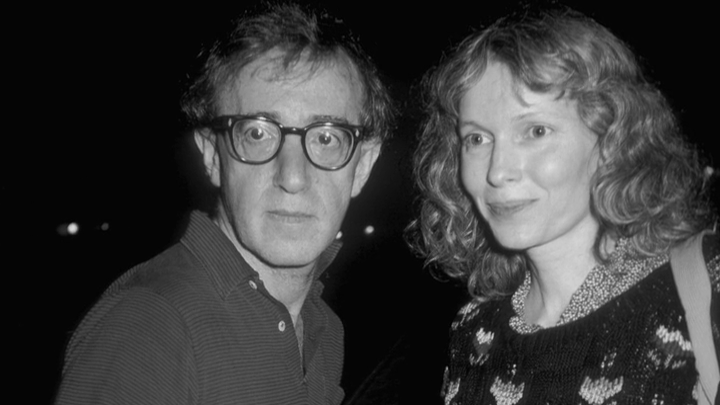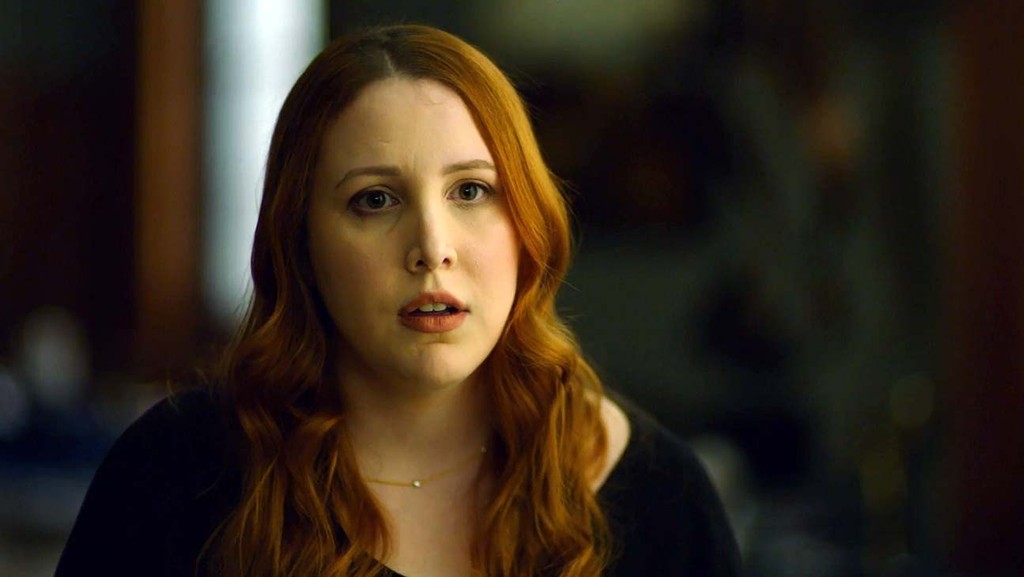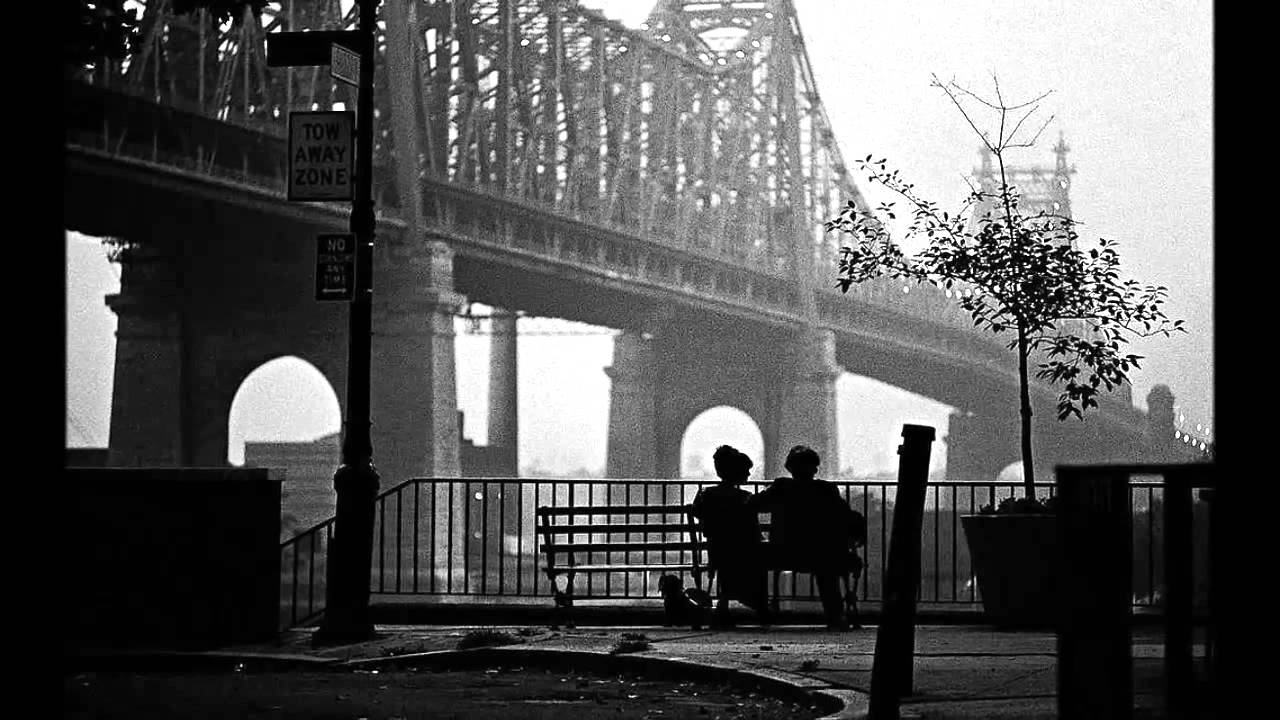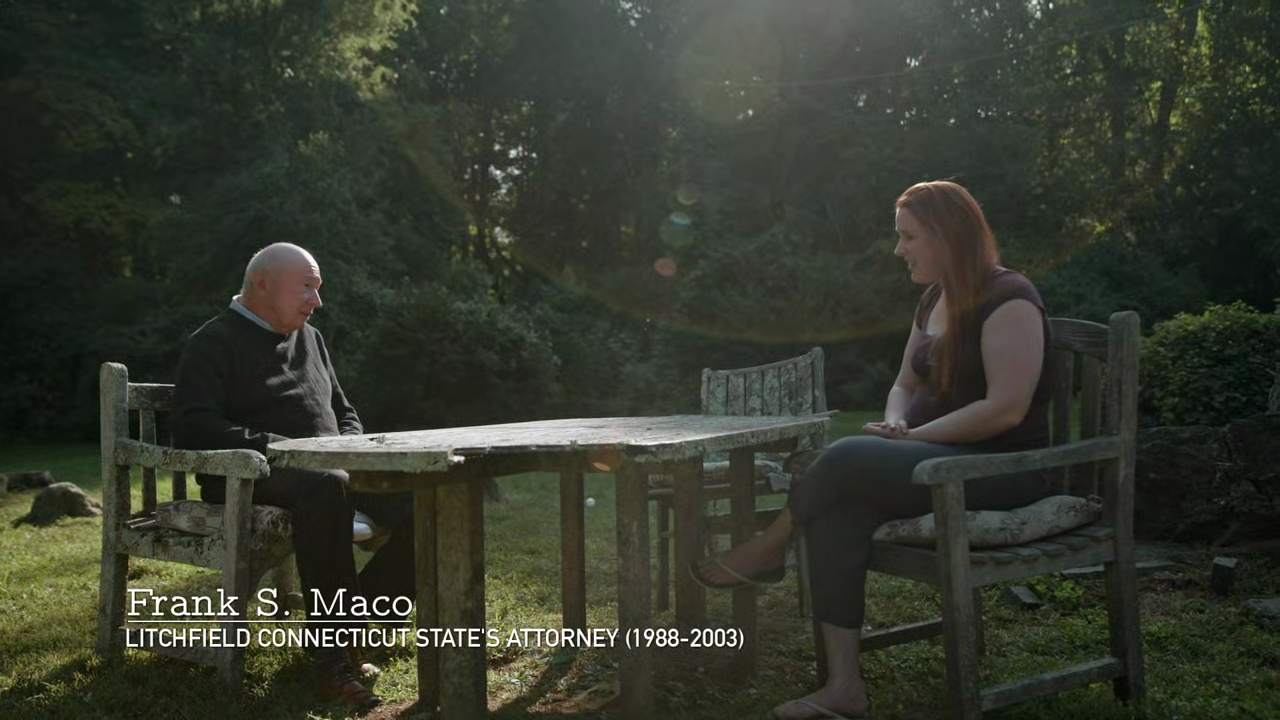“No matter what you think you know, it’s just the tip of the iceberg.” says Dylan Farrow in the first scenes of the documentary, “Allen v. Farrow”. Dylan is the adopted daughter of actress Mia Farrow and director Woody Allen. Her words refer to the alleged sexual assault by Allen that she says took place in August 1992, when she was seven years old. The four-part documentary (HBO production) is written and directed by Kirby Dick and Amy Ziering, already known for The Hunting Ground, on the subject of sexual violence on college campuses, and On the Record, the story of sexual abuse allegations against Russell Simmons. The documentary reconstructs Mia Farrow and Woody Allen’s story from the beginning, giving Dylan center stage. Her words had remained futile to this day because of her father’s version of the facts: he has always declared himself innocent.

The entire production serves as testimony to Allen’s guilt regarding the child abuse allegations that he will never be charged with. The filmmakers conduct their research over a three-year period, getting hold of materials left behind by a lawyer that had remained secret since the 1990s. 60 boxes of stored files (the result of hundreds of searches and lawsuits) contain police documents, recordings, private videos, additional evidence, depositions and sworn testimony. Most have never been published or released to the press. In the fateful year of 1992, Woody Allen makes a statement during a press conference at the Plaza Hotel in New York City. He says he’s in love with Mia Farrow and André Previn’s adopted daughter, Soon-Yi (then 21 years old) and that, “The child abuse allegations are the result of his former partner’s hatred and thirst for revenge.” The filmmakers, along with Dylan and Mia, return to the charming Connecticut home where the entire Farrow family grew up (the actress had twins by her former partner, adopted other children, and had an unexpected son with Woody, Ronan Farrow). Farrow, a journalist, is best known to the public for his work at the New Yorker, which contributed to exposing the sex scandals associated with Harvey Weinstein.

Each story is supported by testimony and visual reconstruction: family films, archival photographs, audio clips from Woody Allen’s autobiography, or telephone records. For each suspicion, fact, or explanation, a figure connected to the case is enlisted: a babysitter, the family friend Priscilla Gilman, New York Times reporters (including Peter Marks and William Grimes), the son Ronan Farrow, critics, doctors, and the investigators. The tape Mia Farrow shot recording her daughter’s words after the abuse (which many refused to believe) is included in the documentary. After the assault, which probably took place during a mysterious twenty-minute period of time at Mia Farrow’s home in Connecticut in August 1992, Dylan’s doctor decided to call the police. An investigation was started in two states: in New York State by the NYC Child Welfare Administration, and in Connecticut under the State’s Attorney Frank Maco’s supervision. The filmmakers get the opportunity to speak directly with Sheryl Harden, who led the case in New York. At the same time, Attorney Maco’s direct testimony supports the entire story leading up to the trial.

Peter Marks, a former New York Times journalist, says, “I grew up seeing Woody Allen as a hero.” Marks can no longer watch any of his movies after he had followed the case. He considers the version of the facts presented by Allen or the judge, implausible. The other side of the coin is the absolute trust placed in Woody Allen by the media establishment, the critics, and the New York elite. Allen is the one who brought cinema to New York and New York to cinema. The first episode begins on tiptoe, highlighting the director’s great talent, starting with Alissa Wilkinson’s voice (film critic, Vox), with other journalists in tow. The initial passionate overview about productions like Annie Hall, Manhattan, Hannah and Her Sisters, and Stardust Memories distracts from the real documentary issue for a moment.

But Woody Allen doesn’t buy it. He expressed his opinion about the documentary Allen v. Farrow (HBO), calling it a product “That has no interest in telling the truth”. The directors commented that they are up for a hypothetical fifth episode and reiterated they had already contacted Allen and his wife Soon-Yi during the filming. The reason is simple: the fourth and final episode leaves no room for what seems a hard truth to accept shared by a large group of Hollywood actors, directors, and producers. From those who worked directly with Allen (such as Kate Winslet, Griffin Newman, Timotheè Chamalet, Selena Gomez, Colin Firth, Mira Sorvino), to Natalie Portman‘s public statement on CBS, to the following and numerous tweets of support: in the footage, everyone expresses their position: “I believe you, Dylan.”

Hollywood started taking Dylan’s side in 2018, during her second attempt to publicly talk about the abuse she suffered because of her adoptive father. Ronan Farrow, her brother, cites a chain of events that was amplified by the MeToo scandal. “You can see how different the reaction was when my sister spoke out in 2014 and when she did so again in 2018. The culture had changed on that front. For the first time, we heard voices and stories like hers,” he says to the filmmakers.
What had happened in 2014? Allen was honored for his career at the Golden Globes. That same day, Ronan Farrow, who had always believed his sister’s public statements but did not want her to expose herself to the public’s reaction, tweeted, “[I] missed the Woody Allen tribute – did they put the part where a woman publicly confirmed he molested her at age 7 before or after ‘Annie Hall’?” Ronan’s provocation comes after reviewing the court documents and the Yale New Haven Hospital statement (which declared Allen’s innocence).

After Dylan’s letter appeal had been rejected by the New York Times and the LA Times, Ronan contacts the New York Times columnist Nicholas Kristof, an acquaintance and family friend. Kristof feels he has to give voice to the aggrieved party in the story and publishes this “extraordinary and moving piece” on his blog on February 1, 2014.
Here’s the intro:
“What’s your favorite Woody Allen movie? Before you answer, you should know: when I was seven years old, Woody Allen took me by the hand and led me into a dim, closet-like attic on the second floor of our house. He told me to lay [sic] on my stomach and play with my brother’s electric train set. Then he sexually assaulted me. He talked to me while he did it, whispering that I was a good girl, that this was our secret, promising that we’d go to Paris and I’d be a star in his movies. I remember staring at that toy train, focusing on it as it traveled in its circle around the attic. To this day, I find it difficult to look at toy trains.”

The attention that the letter received from the media also convinced critics and distributors. A Rainy Day in New York (2019) gets no agreements with Amazon Studios and will never be distributed in the US. From an interview with Miriam Bale, a film programmer and film critic, we learn of an article she published in 2017, “Critic’s Notebook: Why I Will Never Watch a New Woody Allen Film Again.” The big dilemma is: can we separate the art from the artist? From Roman Polanski to Bill Cosby, Kevin Spacey and Michael Jackson, there is no universal answer.
But even for the Connecticut prosecutor Frank Maco, the reckoning comes years later. Dylan and Maco meet for an exclusive interview 30 years after their last contact. Maco decided in ’93 not to involve the seven-year-old in a long and exhausting trial to spare her an unbearable trauma. Today, Dylan Farrow feels that she did not get the chance for justice: “Part of me wishes I had had my day in court.” And the prosecutor responds: “I can tell you right now it’s my fault. There was never a chance I would subject you to anything like this.”

Dick and Ziering’s ability to cover all the years since the tragic episode gives life to the first truly insightful and profound documentary on the case. This is not simply about taking a stand; we are connecting the dots where the leading voice is the one of the victim. It comes to a full circle with Mia Farrow’s words to where it all began: “When the documentary comes out, he will do everything he can to defend himself and attack to be safe again.” Her adopted children, except for Moses, reject Soon-Yi’s recounted allegations of harassment and violence against their mother. And as you might expect, Allen shortly stated, “While this shoddy hit piece may gain attention, it does not change the facts.” Director Amy Ziering commented to The Hollywood Reporter, “We have his own voice reading, his own writing, his press conferences in his words, his court testimony. His side is represented. And he’s welcome to do an interview. Standing offer. We’re sure that HBO would do a fifth episode. We’re here.”
So we await a possible, as yet unconfirmed, sequel to this documentary now considered as a chronicle. It will surely take great writing skills to find the right words and face the formidable edifice built by his daughter Dylan. And we know that the director certainly does not lack that ability.











